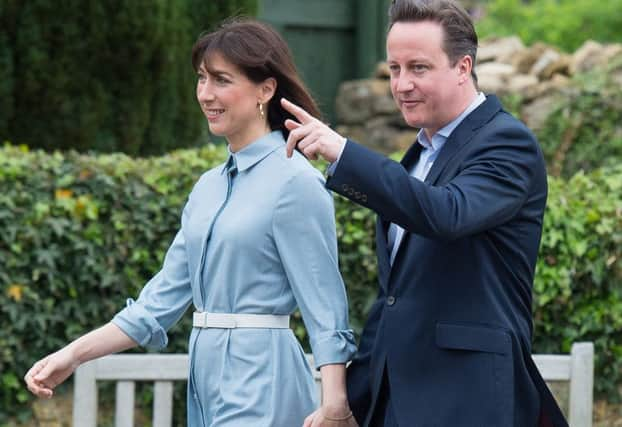Election 2015 update: The Yorkshire Post verdict - Cameron left in poll position


The late swing to the Tories, a surprise to many, appeared to have parallels with John Major’s success in 1992 when those supporting Conservativism went undetected in the opinion polls.
However it would be remiss of the Prime Minister to regard the result as a ringing endorsement of his party. Despite having a slender majority, the Conservatives will still have their work cut out to pass their legislative programme without having to make concessions to others, whether it be the Liberal Democrats or the Democratic Unionist Party from Northern Ireland.
Advertisement
Hide AdAdvertisement
Hide AdThough the outcome was set to be more clear-cut than the opinion polls had forecast, the coming hours and days are unlikely to be straightforward, not least because the seismic gains made by the Scottish Nationalists north of the border will add a totally new dimension to Westminster politics.
Patience will be a virtue – the more important point is forming an administration which reflects the will of the country and can positively influence those big issues likely to dominate the next Parliament such as economic growth, welfare reform, links with the European Union and the future of a devolved United Kingdom.
In this regard, Mr Cameron has three tests to pass as he looks to form a new government. First, the Prime Minister needs to be able to command the confidence of the House of Commons – the key test of a Parliamentary democracy – so a Queen’s Speech and Budget can be passed. This is certainly his intention as he prepares to travel to Buckingham Palace for an audience with the Queen.
Second, the next Government needs to pass the test of time. In this regard, Mr Cameron’s coalition with Nick Clegg does offer a helpful template. It did govern for a full five-year term despite the pessimistic predictions of those who thought the pact between the Tories and Liberal Democrats would disintegrate after 18 months. A coalition built to last will be far preferable to a minority government – and the horse-trading that will be required in order to pass legislation. As the Lib Dem grandee Shirley Williams recalled earlier this week, this proved particularly draining to Jim Callaghan in the late 1970s when he was left bereft of a Commons majority.
Advertisement
Hide AdAdvertisement
Hide AdThird, it needs to forge a framework which treats each and every family in the United Kingdom as equals. Though the SNP are clearly in the political ascendancy and will now wield considerable influence, they are unlikely to react kindly to a Tory-led government – Mr Cameron will need, as a matter of urgency, to offer some form of olive branch to Nicola Sturgeon to lessen the likelihood of a second referendum on Scottish independence which would, once again, threaten to break up the United Kingdom.
In short, Britain wants a strong, stable and secure government. It is now up to Mr Cameron, as Ed Miliband and Nick Clegg contemplate their own futures, to demonstrate how this can happen – either as a minority government or in conjunction with others. Now the hard work begins.
Victory at a price: Commemorating VE Day
ON this day 70 years ago, Britain shook off its natural reserve. A mass outbreak of singing, dancing – and, in some instances, the kissing of perfect strangers – were among the more sensational sights and sounds of a party the like of which these shores had never before witnessed.
The participants – who famously included Princesses Elizabeth and Margaret – had good reason for their revelries. After six long and brutal years of warfare, the guns had finally fallen silent across Europe.
Advertisement
Hide AdAdvertisement
Hide AdThe celebrations in Yorkshire may not all have been as uproarious as those in Piccadilly Circus, but the relief was just as palpable as Victory in Europe Day saw friends, families and entire communities join together to toast Nazi Germany’s unconditional surrender and the promise of the peace they had longed for.
Sir Winston Churchill later recalled that it was “the greatest outburst of joy in the history of mankind” –and justifiably so. It should never be underestimated how great a cost was paid by every man, woman and child who endured those wartime years, their pain and privations being the price of the freedom that we too often take for granted.
Today’s 70th anniversary of this momentous occasion is an opportunity to pause and pay due respect to those who made such sacrifices, from the troops who fought with courage and honour against Hitler’s forces to those who kept the home fires burning.
Memories may recede and first-hand accounts be forever silenced, but the debt owed to those who fought, struggled and suffered in that noble battle against tyranny – and celebrated its hard-won triumph – will never diminish.